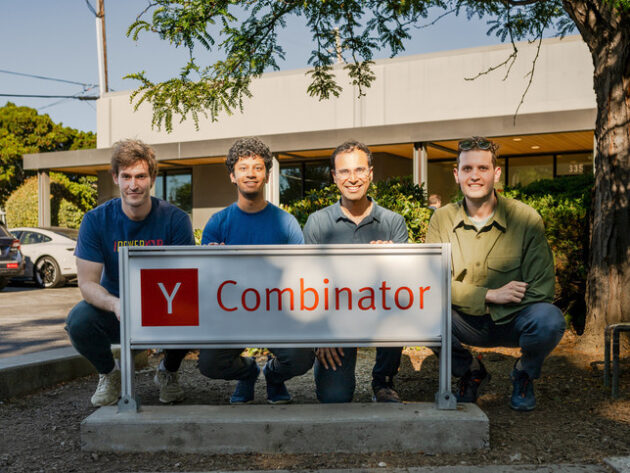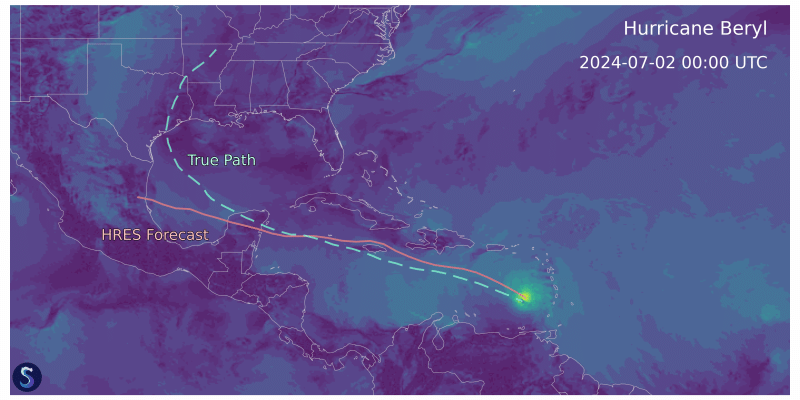
31 12, 2024
Bench Accounting to be acquired by Employer.com following abrupt shutdown
After a surprise shutdown that shocked customers, Vancouver, B.C.-based startup Bench Accounting wil...
Read More

31 Dec, 2024
Working on Aurora, Microsoft’s AI foundation model of the Earth’s atmosphere, Cristian Bodnar and Jayesh Gupta could see that large scale machine learning was primed to drive a sea change in weather forecasting.
“Everybody wants more accurate weather forecasts,” Gupta said. “Everyone wants to know if it’s going to rain tomorrow or not.” And for those in clean energy and grid management, transportation, agriculture and other fields, even slightly better forecasts can have massive economic and safety impacts, he added.
So in June of this year, Bodnar and Gupta teamed up with Nikhil Shankar and Mark Baum to launch Silurian, a startup offering AI-driven, rapidly generated weather forecasts.
The company participated in the Y Combinator summer cohort and in August released its Generative Forecasting Transformer, or GFT, a model that simulates global weather and can outperform predictions by U.S. and European forecasting agencies on numerous parameters.
Next month, Silurian is rolling out an upgrade to its forecasting tool to produce even more accurate results, Gupta said.

Gupta, the CEO, and Chief Engineering Officer Shankar are based in the Seattle area while Chief Scientist Bodnar is located in London. Baum is no longer with Silurian.
Silurian’s GFT provides forecasts stretching out two weeks and at a resolution of roughly 11 kilometers, which is close to other systems. The tool can beat forecasts by the National Oceanic and Atmospheric Administration (NOAA) and the superior European Centre for Medium-Range Weather Forecasts (ECMWF), Gupta said.
The weather forecast sector is in a state of flux as private entities are making significant predictive gains. In addition to Silurian and Microsoft, additional players include Google’s DeepMind with tools such as GenCast; Nvidia’s StormCast, which is focused on precipitation; startups such as Planette and Sunairio that are producing longer-term climate forecasts; and others.
The role of NOAA going forward is uncertain as some conservative forces are calling for weather forecasting to be entirely privatized, though the agency has launched a $100 million effort to upgrade its weather and wildfire forecasts. At the same time, China’s President Xi Jinping has ambitions for making his nation a “weather superpower.”
Another of Silurian’s benefits is the system is more energy efficient compared to traditional forecasting technology — though there is increased power consumption upfront when the model is being trained on large scale, public datasets.

“If you actually compare against the existing supercomputing infrastructure, which is being run to make these [agency] weather forecasts, we are a fraction of the operational energy cost,” Gupta said, noting that the government supercomputers are being run “constantly.”
As Silurian preps for the unveiling of improved capabilities, Gupta said the startup is committed to increased transparency around evaluations of its forecasting performance.
“We actually are going to be lot more open about our evaluations,” he said. “That’s something which we feel is missing from the overall private sector of weather forecasts, where people claim to be better than us, but never really clarify better at what.”
The startup also aims to create tools to help customers take their weather predictions and apply them to decision making. Gupta emphasized the importance of better forecasting in efforts to decarbonize the energy system through renewable power use.
Silurian additionally has plans for air quality forecasts, including smoke predictions necessitated by wildfires.
Related stories: